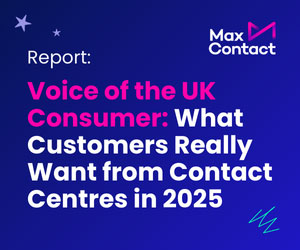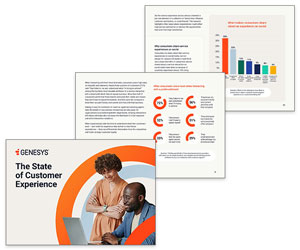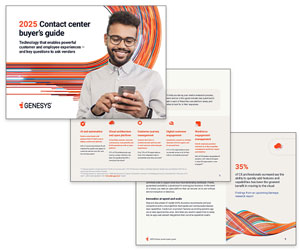Today luxury is no longer defined solely by price tags or designer labels, it’s defined by the experience a brand delivers.
For high-end consumers, exceptional service isn’t just a bonus, it’s an expectation that they will be offered unparalleled customer service that creates unique, memorable experiences, making clients feel truly valued and understood.
Leading luxury brands understand this, and set themselves apart not through efficiency alone, but through service that feels personalized, seamless, and emotionally resonant.
It’s in the warm greeting that remembers your name, the thoughtful follow-up after a purchase, and the attention to detail at every step of the journey.
This article explains how luxury customer experience stands apart, with provides examples and expert guidance on how to deliver it effectively.
What is Luxury Customer Service?
Luxury (or elevated) customer service is about creating a sense of exclusivity, prestige, and trust, ensuring that every customer feels valued, special, and understood.
It’s not just about meeting expectations but exceeding them in ways that enhance the overall brand experience.
Luxury customer service goes beyond the standard service (such as that provided by their energy supplier), by focusing on providing personalized, exceptional, and memorable experiences.
Essential components of luxury customer service encompass:
- Customized experiences & anticipating client needs
- Highly trained staff & proactive follow-up
- Efficient & responsive problem resolution
- Exceeding expectations
- Fostering relationships & creating lasting memories
How to Provide Luxury Customer Service
Here are 11 ways to deliver luxury customer service:
1. Build an Emotional Connection
There’s so much choice out there, so many businesses competing, that the differentiating factor is how the agent can develop a bond with the customer that’s going to go beyond ‘just a transaction’.
That’s why building an emotional connection is what all luxury brands should be aiming to do, to inspire loyalty among their customers. It’s about helping to keep the brand in the customer’s mind.
You can find out more about how to build an emotional connection with customers in this article: How to Build an Emotional Connection with Customers
2. Individualize the Conversation
One way to deliver luxury customer service is to focus on individualizing the conversation. This is a step beyond personalization.
Personalization is about creating a unique version of a product, for example, a monogram on a bathrobe, or an email adjusted for that specific customer to include their name.
Individualization comes down more to segmenting and tailoring messaging, so it truly resonates with that individual customer, so you are always talking to them about something that genuinely matters to them.
It’s building in systems and processes that mean you won’t be sending a client who has three children invitations to nightclub events for under-20s.
Why make the time to do this? It’s quite simple really…
When you individualize and tailor your communication, the customer is more likely to feel that their life is being enriched by your business – rather than you “just trying to sell something to them”.
Delivering a tailored experience, driven by understanding and a desire to build longer-term relationships, will help to set your brand apart as a luxury.
3. Train on Critical Touchpoints – Not Basic Processes
Training agents to deliver luxury customer experience isn’t about learning the basics. Your call centre will likely already have a training team in place to teach agents to answer the phones, use support systems, and so on.
Training to deliver an elevated (or luxury) customer experience is layered on top of these firm foundations. It’s about mapping customer journeys for different engagements, identifying important touchpoints, and assigning enhanced quality standards to these critical elements.
4. Educate, Inform, and Inspire
It can help to split the training process into three key areas:
Educate
This is around the critical moments in the customer journey, and what agents need to deliver and when for the very best customer experience.
Inform
This is to give agents a little bit more information about why this is important, who the customers are, what their customers’ expectations are, what their customers might be experiencing when they call, and giving them some tools to empathize with the customer.
Inspire
This gives the frontline a real reason for doing their best. What difference does it make to the business? Who else in the world is doing the same job that you need to set yourself apart from?
It’s then paramount that you keep a close eye on all of the above with a quality control programme, where you check that those standards are being adhered to and give support where needed.
5. Expose Agents to Other Luxury Brands and Services

It’s also really important that the agents who are delivering this elevated service have experienced a luxury brand first-hand. This helps agents to see what they should be striving for.
Depending on budget and industry connections, this could range from a local hotel stay to a meal at a Michelin-starred restaurant, or even an experience safari. This will help to take the learnings out of the training room and witness the big and small elements that result in an exceptional customer experience.
For managers looking to find a suitable experience for this exercise, it’s about looking for a service that meets or exceeds expectations most of the time.
Contributed by: Andrew Wolmark, founder of Parade (experts in luxury guest experience strategy and training) and former Chief Experience Officer at Quintessentially
6. Prepare to Meet Higher Expectations
High expectations underpin luxury experiences in the call centre, so to truly deliver excellent customer experiences in this market, you must over-achieve against these already high expectations.
If you think about calling your energy supplier or doctor, for example, you’re probably happy enough (maybe even delighted) if they’ve picked up the phone within 10 minutes – as your expectations are relatively low.
Switch up to a luxury retailer and you instantly have much higher expectations and may even become frustrated if your call hasn’t been answered within 2 minutes.
This same logic can be applied to how quickly they reply to emails, and other key touchpoints across the customer journey. That’s why it’s critical to have the systems, people, and processes in place to excel in these areas.
7. Empower Agents to Do an Amazing Job
How do you take it from good to brilliant? This comes down to empowering agents to do a great job. It’s no good just telling agents to go and deliver a luxury customer experience, they’ve got to have the tools to do it!
For example, a CRM system that gives agents the information to be able to say such things as “Hi Mrs Jones, I see that you called yesterday and that you’re waiting on your £4,000 Dior handbag to be delivered” and to be able to instantly issue an apology gift such as a bottle of champagne.
Top Tip – Luxury brand agents may also regularly handle interactions with customers who’ve saved for a year or more for their Hermes handbag (for example), so it can be a very disappointing and emotional experience when things don’t go well or a product arrives late or damaged.
8. Humanize the Customer Experience

For all contact centres, processing interactions within a metric framework is part of its fabric.
The determination of these metrics and their respective value is quite specific to each centre, but what is critical in all centres, and especially within luxury contact centres, is that these metrics don’t obscure the human need that sits behind them.
Driving agents to ‘manage tickets’, ‘clear the email backlog’, or ‘look at the number of interactions in the queue’ creates a process-focused environment and dehumanizes the customers.
The language used within luxury contact centres in particular has to recognize that there is a customer with a need and a potentially high lifetime value behind every interaction.
Using terms such as ‘we have 20 customers looking for support in the queue’ or ‘there are 100 customers with outstanding requirements that we have to get back to’ suddenly brings the customer back into the room and brings them and their respective experience into focus.
Contributed by: Nerys Corfield, Director at Injection Consulting Limited
9. Don’t Forget About Your IVR!
Luxury brands provide a personalized service to their customers; once they know you then they’ll go out of their way to keep you as a customer, and part of that is making you feel special.
Here are some personalization tips for your IVR:
- Automatically recognize your customer’s phone number and customize your IVR welcome message with the client’s name.
- Provide a dedicated account manager who understands the client’s needs.
- Predictive call routing – direct the customer to the relevant department or their dedicated account manager by pre-empting their enquiry.
- Remove or minimize call queue times – no one likes being on hold.
10. Create Rapport
Luxury brands look to wow at every opportunity and it’s difficult to create rapport via digital channels; they may be good for answering quick questions, but when a customer has a complex question, or even a complaint, there’s only one way to go… Pick up the phone!
Whilst it will cost you more in time, money, and effort, it will bring your customer closer and strengthen your brand, creating a memorable experience.
For some top suggestions on building rapport, read our article: 28 Effective Ways to Build Rapport With Customers and Clients
11. Customer Feedback

Your perception of your customer service is just that: yours. What really counts is how your customers feel and think, and that’s where customer surveys come in.
Gaining feedback from customers after every interaction allows you to constantly monitor and improve your service to spot and resolve potential issues and plug gaps in agent training. Proactive customer service is infinitely better than reactive.
Ask better questions and act on the responses. It’s the adage of what gets monitored gets improved.
Contributed by: Steve Hindley, Customer Experience Consultant at IVR Recordings
To discover more insights on how to develop your customer service to stand out, check these out next:
- EPIC Customer Service Explained
- 18 Characteristics of Great Customer Service
- 6 Ideas for a Great Personalized Customer Experience
Author: Megan Jones
Reviewed by: Robyn Coppell
Published On: 5th Jun 2023 - Last modified: 24th Apr 2025
Read more about - Customer Service Strategy, Andrew Wolmark, Customer Engagement, Customer Service, CX, Nerys Corfield, Steve Hindley





















